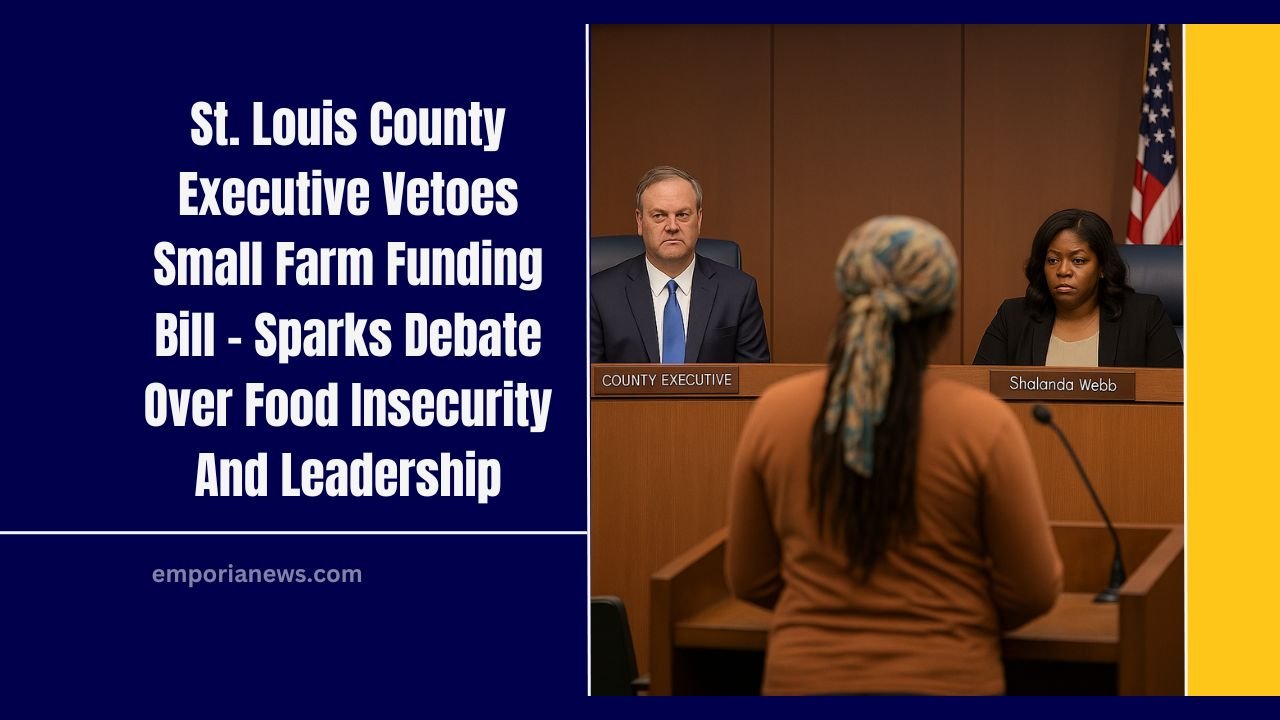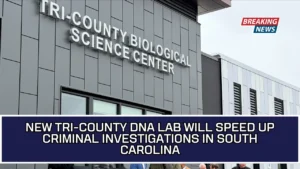ST. LOUIS COUNTY, Mo. – In a controversial move, County Executive Sam Page has vetoed a bill intended to provide direct funding for small farm development in the region.
The proposal, which had passed the county council, was designed to support local agricultural efforts and address food insecurity in underserved communities. However, Page rejected it, citing legal limitations around direct financial grants.
Instead of direct aid, Page proposed a $4.5 million public bidding process to fund agriculture-related projects—a shift that has led to widespread debate, frustration from council members, and concern from community members and farmers.
Key Highlights of the Veto and Response
| Detail | Information |
|---|---|
| Bill Purpose | Provide funding for small farms in St. Louis County |
| Vetoed By | County Executive Sam Page |
| Reason for Veto | Legal constraints on direct funding |
| Proposed Alternative | $4.5 million public bidding program |
| Main Supporter of Original Bill | Councilwoman Shalonda Webb |
| Criticism From | Webb and local residents over lack of support and leadership |
| Key Figure Affected | Dail Chambers, founder of Coahoma Orchards |
| Funding Requested for Project | $35,000 to plant a raspberry field |
Councilwoman Webb’s Reaction
Councilwoman Shalonda Webb, who sponsored the bill, voiced strong criticism following the veto. She labeled the move as a “failure of leadership”, arguing that it undermines efforts to empower local farmers and combat food insecurity in communities like Spanish Lake.
Webb has also highlighted her ongoing support for several farmers affected by the decision, including the owner of Rustic Roots, a local farming initiative with personal connections to her former assistant.
Farmer Dail Chambers Speaks Out
The veto particularly affected Dail Chambers, founder of Coahoma Orchards, who had planned to use a modest $35,000 grant to establish a raspberry field.
Chambers ultimately withdrew from the project just days after its approval, citing lack of protection and escalating tension surrounding the funding debate.
“It’s silly; I had the smallest part of the budget, but I care more about being on the right side of history,” Chambers said, expressing her disappointment during a public meeting.
Concerns Over Food Insecurity and Research Gaps
One of the core motivations for the original bill was to address food deserts and increase access to fresh produce in certain parts of the county.
However, critics like Tom Sullivan questioned whether such concerns were valid in areas like Spanish Lake, claiming there are already multiple grocery stores offering fresh produce.
Sullivan stated:
“I could identify 7 [stores], but the council didn’t bother to check.”
This raised further concerns about the council’s lack of data-driven planning and whether the funding would have been properly utilized for the stated purpose.
The Bigger Debate: Planning vs. Politics
While the veto sparked backlash, it also brought to light broader issues surrounding government planning, oversight, and public trust.
Several community members who spoke at the council meeting emphasized the need for collaborative solutions, urging officials to rethink the strategy instead of letting politics derail meaningful progress.
Some attendees called on the council to restructure the proposal within legal bounds so that community farming initiatives can still receive the support they need.
What Comes Next for Small Farm Funding?
With the original bill off the table, all eyes are now on the $4.5 million public bidding plan suggested by Page. While details remain limited, the initiative could potentially open opportunities for more competitive and compliant funding pathways, assuming stakeholders can align on priorities.
The veto of the small farm funding bill in St. Louis County has stirred a heated public and political debate.
While County Executive Sam Page defended his actions based on legal concerns, critics—including Councilwoman Webb and affected farmers—see the decision as a missed opportunity to uplift local agriculture and address food equity.
As the community awaits details on the public bidding alternative, the hope remains for transparent, fair, and impactful support for local food initiatives.




